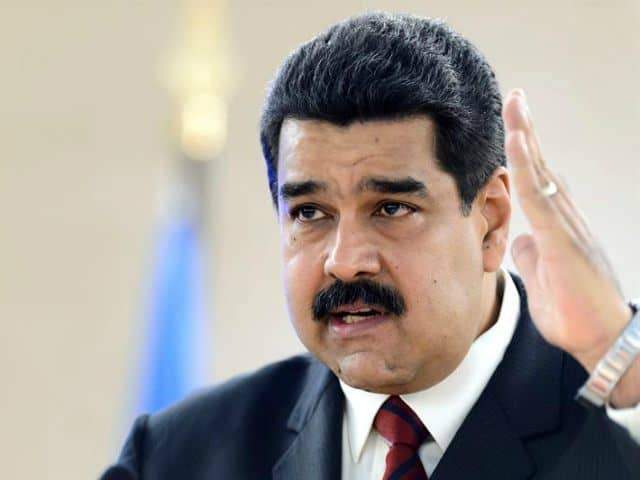Colombia Accuses Venezuela’s Maduro of Trying to Buy Missiles from Iran

Colombian President Ivan Duque said Thursday that Venezuelan dictator Nicolas Maduro is attempting to buy medium- and long-range missiles from Iran, which is ramping its weapons program amid escalating tensions with the United States.
Citing international intelligence agencies, Duque said that talks about such a sale are in their preliminary stages.
“There is information from international intelligence organisms that work with us which shows there is interest from the dictatorship of Nicolas Maduro in acquiring some medium and long-range missiles through Iran,” said Duque. “The information is that (the missiles) still haven’t arrived but there has been contact especially under instructions from (Venezuela Defense Minister Vladimir) Padrino.”
“We have longstanding but also confirmed intelligence information that members of the Venezuelan Guard are seeking weapons from other countries, particularly from Russia and Belarus,” he continued. “Fortunately we have the capacity to know and condemn.”
Duque, a right-wing conservative allied with the United States, made the claim days after meeting with the Trump administration’s national security adviser, Robert C. O’Brien, as well as other top officials in the nation’s capital.
The revelation raises new questions about Maduro’s intended influence on the region, having transformed the once-wealthy South American country into a Cuban-style communist dictatorship and one of the world’s worst-performing economies. Colombia is one of the more than 50 nations that refuse to recognize Maduro as Venezuela’s rightful leader, as it continues to suffer under the impact of Venezuela’s unprecedented economic and political crisis.
Since 2015, Colombia has accepted close to two million Venezuelans fleeing their homeland, many of whom are in need of humanitarian assistance. They have also accused Maduro of funding and supporting Marxist guerilla groups that have destabilized Colombia over the past two decades, such as the People’s Liberation Army (ELN), that continue to carry out terrorist attacks against security forces and the civilian population.
Just this week, Iran showcased its weapons capability by highlighting new surface-to-surface ballistic and cruise missiles in an obvious rebuke to the United States, which is demanding the regime halt its weapons program. According to Defense Minister Amir Hatami, the two missiles were produced by Iranian scientists and boast a range of over 1,000 kilometers and are named after the Iranian Maj. Gen. Qasem Soleimani, whom the U.S. killed in a drone strike this year.
Meanwhile, Maduro has long prioritized military spending over just about everything, demanding loyalty from high-ranking generals in return for high salaries and effective impunity.
Relations between Iran and Venezuela have become closer throughout the past few years, the two countries strengthening their alliance in response to economic sanctions the U.S. imposed against their respective regimes. Signs of this relationship include the growing number of oil shipments sent from Tehran, the opening of Persian supermarkets in Caracas, and reports that Maduro is allowing Iranian terror-proxy Hezbollah to use Venezuela as its Latin American operating base.











